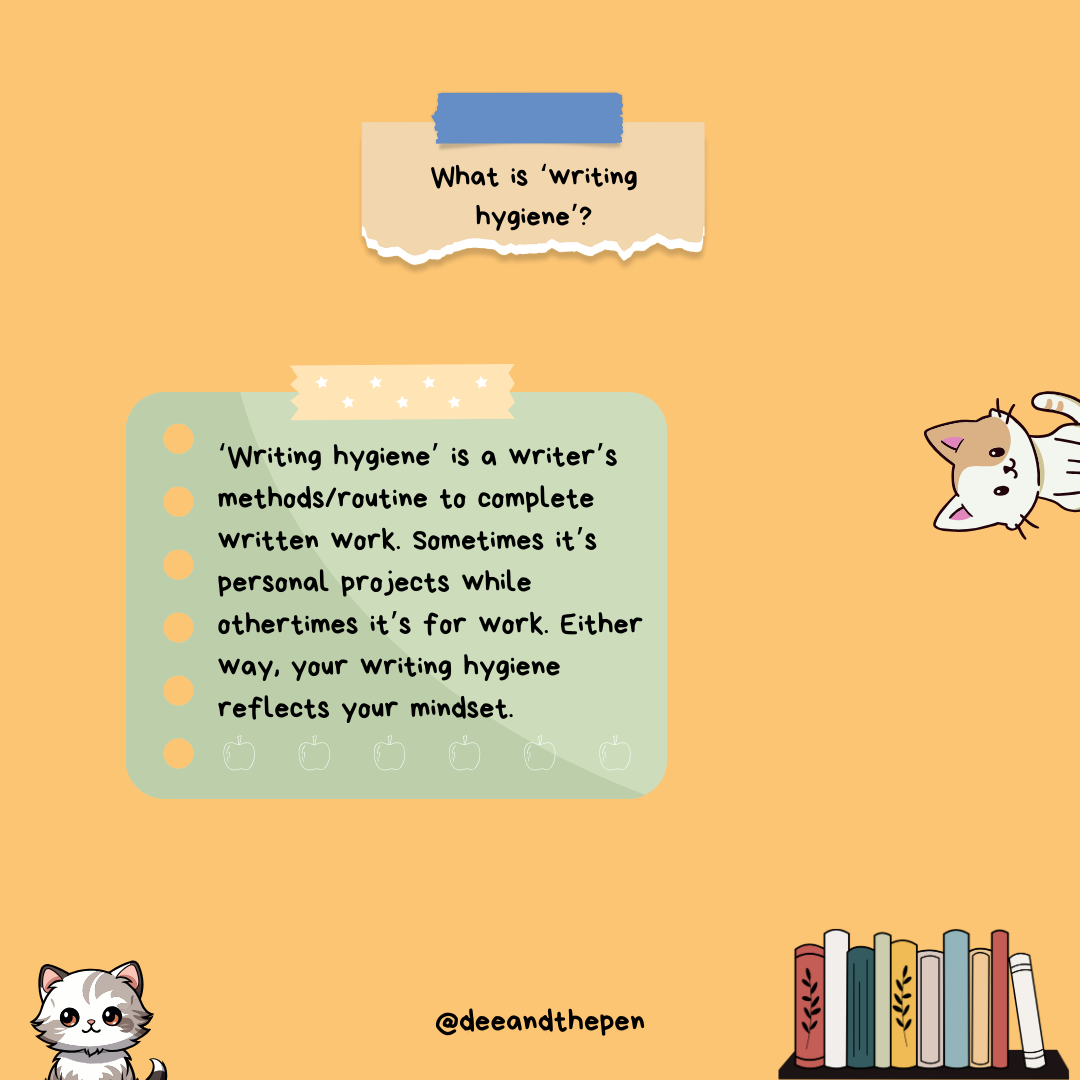I wrote my first (unofficial) novel at the age of fifteen. After scouring the internet and Tumblr for research, my masterpiece came to life. My obsession with faeries and Gaelic mythology transformed into a 300-page dark fantasy. Each chapter helped inch my protagonist, Aine, closer to overthrowing an evil Attorcroppe ruler, and claiming her right to the throne. It was a dedication that required late nights and sneaking onto the family computer at 3 AM. My efforts, while full of rigor, fell short because the novel was — tragically — poorly written. Aside from plot holes and poor syntax, my story read rushed. I managed three misguided query letters before giving up.
This wasn’t the only story I wrote but it was my first time writing a novel. The story remains close to my heart because it combined my fifteen-year-old writing talent and the need to tell my story through the lens of a hybrid fae trapped in a toxic family. For most writers, we write because of stories stirring inside of us. These stories contain a wonder of trauma and triumph that could expertly be explained through fantastical metaphors or vigilant protagonists who will stop at nothing to achieve their goal. As fantastical as it is to transport your pain into your craft, it isn’t a hobby you can turn on and off. It’s a skill that we often forget to prioritize and practice.
I didn’t come to my senses until earlier this year when my oldest sister handed me the ticket to my writing rebirth — Language of Flowers by Vanessa Diffenbaugh. The story was poignant and painful with stunning imagery and a complex female protagonist. But what really captured me was the writer’s careful study of her book’s world. I noticed just how much time went into learning her characters and building the world around her. Diffenbaugh understood her characters and world like the back of her hands and I desperately wanted that for my own writing.
Language of Flowers took me back to pivotal scenes in my first novel. The bits and pieces of powerful writing were there, BUT if there was a little push, those scenes could’ve come to life and brought readers to tears just like Diffenbaugh’s.
So, the million-dollar question awaits: How does one achieve this incredible feat? Healthy Writing Hygiene.
What is Writing Hygiene?
I didn’t come up with the term until recently because I suddenly had an epitome. Despite all the years of school, self-help books purchased, and re-watching panels of bell hooks and Toni Morrison, nothing was going to cure my bad writing habits except me. In last week’s post, I mentioned how writer’s block affected my confidence and made me hold back on submitting. But that’s only half of it. Writer’s block also created an extremely unhealthy writing habit.
Since writer’s block birthed zero creativity and drive, the few moments I’d get the manic writing nerve, I jumped on it and created highly unrealistic plans. This looked like applying to job boards or contests with little to no practice in the last month. This also looked like writing close to 5,000 words on some days and cramming assignments in at the last minute. While writer’s block sucks, if we fail to cure it + don’t develop healthy writing schedules, our projects will never come together.
Thankfully, correcting your writing hygiene doesn’t have to be hard. In fact, understanding the components of it + how to create your ideal schedule is a breeze.
For starters, writing hygiene is the practice of daily writing to keep three areas in check:
· Skill
· Duration
· Creativity
If your mind is overwhelmed with a chaotic schedule, your writing will lack structure and growth. This is part of the reason why a lot of my creative projects have failed. About a year ago, I decided to write a novella and posted on substack every week. But, because my writing hygiene was awful, I got overwhelmed and abandoned the project. In this post, I outline the reasons I failed and what I’d do differently, but let’s briefly explain them here:
· Poor writing hygiene > Proper scheduling
· Lack of organization > Story mapping
· Not knowing the goal > Better research
When you set out to complete any writing project, you must have something stronger than passion to make sure the project gets done. If we revisit Language of the Flowers, there’s a glossary section with a bounty of flowers and their meanings. Do you think Vanessa Diffenbaugh took an hour to jot those down? No way. She likely had to go through a research process and maybe even speak with experts. Aside from flowers being a huge theme, Diffenbaugh’s landscape (check out my post on writing setting) and character evolutions were so distinctive — they complemented the other so well.
How do you create writing hygiene?
It all begins with you. No, seriously. Writing hygiene differs amongst people. Octavia Butler famously had a routine of writing for hours before her 9-to-5. As much as I admire Miss Butler, I am not an early riser — I’m an insomniac who loves coffee and listening to dream pop at 2 AM. So, my writing hygiene will look different. But to begin, let’s ask five crucial questions:
· What time of day do you work best?
· What is your daily writing threshold?
· What areas does your writing need improvement?
· What authors inspire your work/project?
· What is your short-term goal?
These questions help map out your schedule so you don’t get overwhelmed. Mine look like this:
· I work best between 1 pm to 5 pm and 10 pm to 2 AM
· I can comfortably write 3,000 words daily
· Structure and plot
· Toni Morrison, Malinda Lo, Octavia Butler, Vanessa Diffenbaugh, Mike Flanagan
· Get a rough draft of the first six chapters
With these answers, I can create a schedule that works for my daily routine. I’ll be able to assess and plan my days accordingly without running into brain fog from trying to do too much at once.
Writing hygiene doesn’t have to be complicated. Remember: whatever your goal is, you need discipline just as much as a love for the craft.
If this post inspired you, please subscribe to my substack + follow me on my writing page via Instagram and TikTok @deeandthepen. I’ll be sharing daily posts and blog updates every week. For those needing a little more inspiration, here’s a quote:
“Write it on your heart that every day is the best day in the year. He is rich who owns the day, and no one owns the day who allows it to be invaded with fret and anxiety. Finish every day and be done with it. You have done what you could. Some blunders and absurdities, no doubt crept in. Forget them as soon as you can, tomorrow is a new day; begin it well and serenely, with too high a spirit to be cumbered with your old nonsense. This new day is too dear, with its hopes and invitations, to waste a moment on the yesterdays.”
-Ralph Waldo Emerson
Stay inspired, writers!









I loved the way u set this up and will def be reading the book u talked about! I’m curious haha! 💜 I’m motivated and inspired to take on my projects now. I found it best for me to be creative as I wake up bc my mind is fresh🥰🥰
omg this post is so motivating. im about to graduate with a BA in Literature and i still dont feel like i have good writing hygeine 😭 i thought i would develop it during my time in school but i honestly feel like school is what has hindered me from developing a schedule that works for me bc i am constantly overwhelmed with classes. hopefully this summer i can find some answers and start to figure out how i write best and most productively outside of the pressures of academia. ESPECIALLY as someone with ADHD, focus and time management are like the hardest things in the world for me so im driven pretty much only by the "manic writing nerve" (PERFECT way to describe this by the way) and passion without any discipline at all really😭